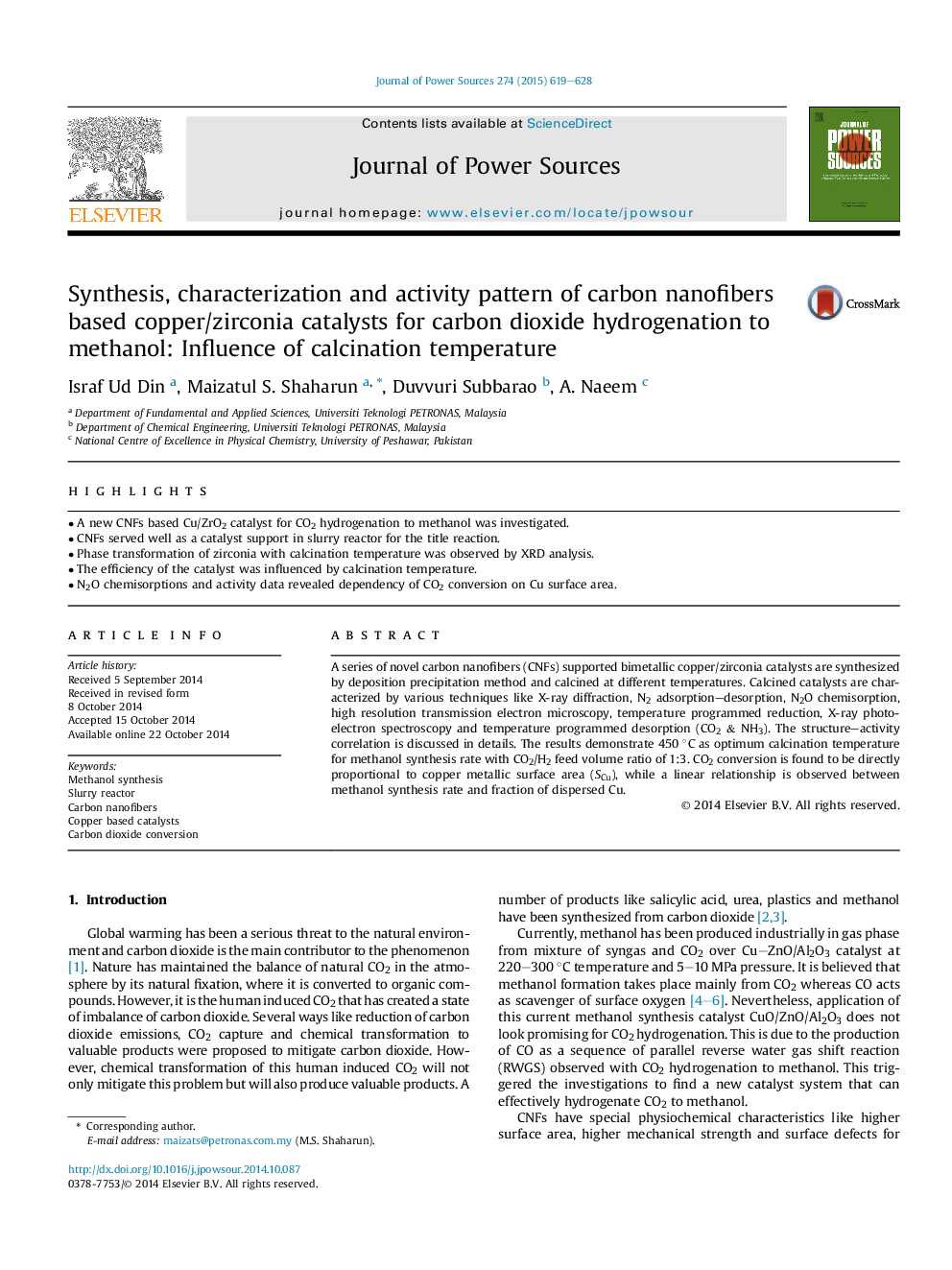| Article ID | Journal | Published Year | Pages | File Type |
|---|---|---|---|---|
| 7734649 | Journal of Power Sources | 2015 | 10 Pages |
Abstract
A series of novel carbon nanofibers (CNFs) supported bimetallic copper/zirconia catalysts are synthesized by deposition precipitation method and calcined at different temperatures. Calcined catalysts are characterized by various techniques like X-ray diffraction, N2 adsorption-desorption, N2O chemisorption, high resolution transmission electron microscopy, temperature programmed reduction, X-ray photoelectron spectroscopy and temperature programmed desorption (CO2 & NH3). The structure-activity correlation is discussed in details. The results demonstrate 450 °C as optimum calcination temperature for methanol synthesis rate with CO2/H2 feed volume ratio of 1:3. CO2 conversion is found to be directly proportional to copper metallic surface area (SCu), while a linear relationship is observed between methanol synthesis rate and fraction of dispersed Cu.
Related Topics
Physical Sciences and Engineering
Chemistry
Electrochemistry
Authors
Israf Ud Din, Maizatul S. Shaharun, Duvvuri Subbarao, A. Naeem,
